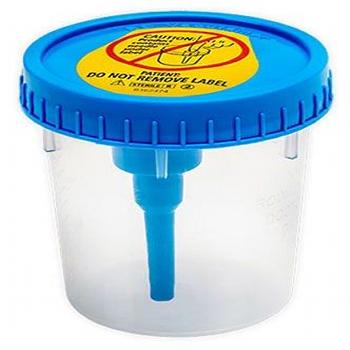DOT drug testing is a crucial component of safety regulations for transportation employees, encompassing the following key aspects:
Safety-Sensitive Employees: Testing is required for individuals in positions that significantly impact public safety, including drivers, pilots, and other transportation personnel.
Federal Mandate: The program is established by federal law to ensure compliance with regulations and promote a drug-free workplace.
5-Panel Urine Drug Test: The testing process employs a 5-Panel Urine Drug Test to detect five commonly abused substances, including:
- Amphetamines
- Cocaine
- Marijuana (THC)
- Opiates
- Phencyclidine (PCP)
Prohibited Substance Detection: The test specifically looks for the presence of illegal drugs and alcohol, contributing to a safer environment for both employees and the public.
By adhering to these testing requirements, organizations demonstrate their commitment to maintaining safety standards in the transportation industry.
Why would I need this test?
The Return to Duty: A 5-panel DOT Urine Drug Test is required for individuals who have violated the U.S. Department of Transportation (DOT) drug and alcohol regulations and are returning to safety-sensitive duties. This test is typically administered:
After an employee has completed the required substance abuse program (SAP) following a positive drug test or violation.
Before the employee can return to safety-sensitive duties, such as operating commercial vehicles or performing other safety-critical roles.
To ensure that the individual is drug-free and able to perform their duties safely in compliance with DOT regulations.
Will over-the-counter or prescription medications affect the test results?
Yes, certain over-the-counter and prescription medications can affect the results of the 5-panel drug test. Common medications that could cause false positives include:
Decongestants or cold medications containing pseudoephedrine may trigger positives for amphetamines.
Prescription pain medications such as codeine or hydrocodone may appear as opiates.
OTC sleep aids or antihistamines (like diphenhydramine) may also impact the results.
It’s important to inform the testing administrator about any medications you are currently taking so that the lab can properly interpret the test results.
How is the sample collected for the test?
The collection process for the 5-Panel DOT Urine Drug Test involves the following steps:
You will be directed to a certified collection facility where a trained technician will guide you.
Using a sterile container, you will provide a urine sample in a private restroom.
Sometimes, the test may be observed to ensure the sample's integrity, especially if tampering is suspected.
The sample will then be sealed and sent to a laboratory for analysis.
The test screens for five major drug classes, marijuana, cocaine, amphetamines, opiates, and phencyclidine (PCP), in compliance with DOT regulations.
What happens if I fail the Return to Duty drug test?
If you fail the Return to Duty drug test, you cannot resume safety-sensitive duties. You will be required to re-enter the Substance Abuse Program (SAP) for further evaluation and treatment. The employer may impose additional requirements, and you must pass another Return to Duty test before being allowed to return to work.
